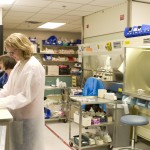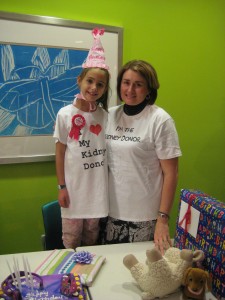A study published in the May 17, 2010, issue of the journal Pediatrics found that one type of pesticide commonly used on fruits and vegetables may be contributing to attention deficit hyperactivity disorder, or ADHD, in children.
The study measured the levels of pesticide byproducts in the urine of 1,139 children from across the United States. Children with the highest concentration of pesticides in their urine were more likely to have symptoms of ADHD.
Dana Boyd Barr, PhD, a research professor in the Rollins School of Public Health at Emory, spent more than 20 years studying pesticide exposure at the Centers for Disease Control and Prevention (CDC). Barr was not a member of the research team that published these findings on pesticides and ADHD, but data generated in her former CDC lab was analyzed for this particular study.
Barr says while the study doesn’t prove causality between pesticide exposures and ADHD, it does shed light on how even low level daily exposures to pesticides could potentially impact cognitive health.
“It seems very plausible that low-level daily exposures to pesticides can produce some subtle effects like ADHD or other neurological delays,†she says.
Barr notes that additional research is needed to confirm a connection to pesticides and ADHD, but says there are tips for limiting your exposure to commonly used pesticides.
“We’ve done studies here at Emory and also at CDC that have indicated that if you use organic food or if you wash your food properly prior to preparation, you can reduce the levels of these metabolites in your urine. Eat as much organic produce as possible, or wash your fruits and vegetables very well and that likely could decrease the chances of your children developing ADHD,†says Barr.









 The
The 
